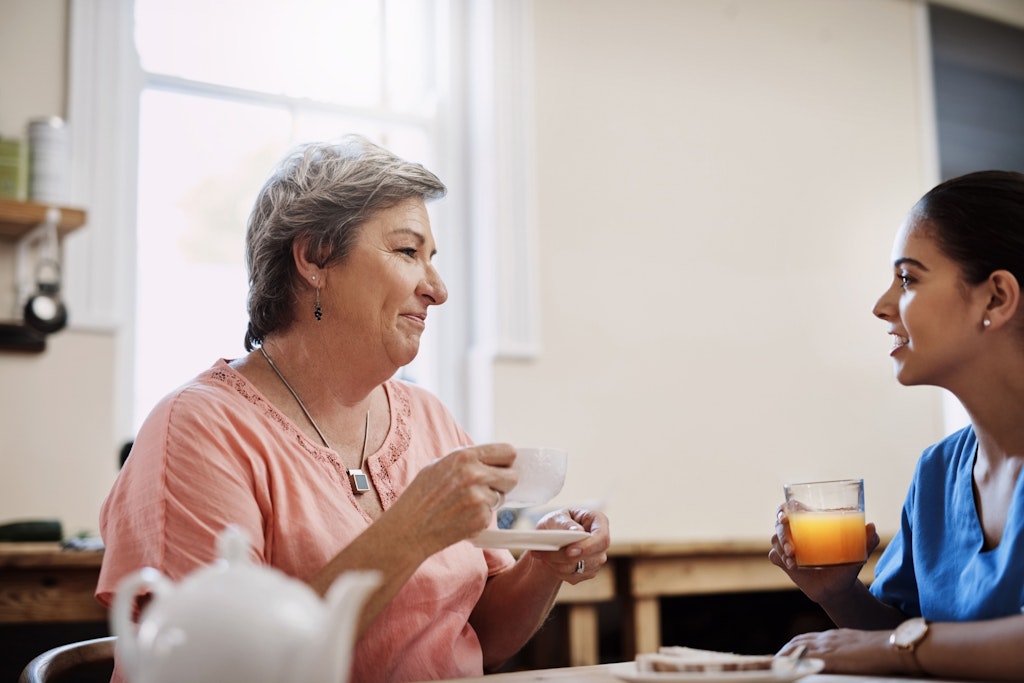Provider insight: Gov releases helpful resources for training and support
Published on 7 June 2024

A Host of new resources are available to aged care providers after the Department of Health and Aged Care published useful guides on free Government-funded training and support services. Hello leaders is here to ensure you don’t miss out on the releases.
Free diversity training and support for aged care providers
Aged care is evolving and it’s essential for all providers to recognise the diversity of their residents or home care clients. One of the Department’s newest resources highlights free diversity and training support services for a range of older people, including First Nations or LGBTIQ+ people. This is what’s on offer.
Planning for Diversity workshop series – The Planning for Diversity workshop series, delivered by OPAN, can help you make your services more inclusive of older people from diverse and marginalised groups.
Planning for Diversity is especially beneficial for aged care staff responsible for quality improvement, service planning and compliance
Silver Rainbow: LGBTI aged care awareness training – LGBTIQ+ Health Australia, in partnership with various providers, is funded by the Government to deliver Silver Rainbow training.
Silver Rainbow awareness training offers information and support to help you deliver inclusive and respectful care to older people who are LGBTI. Silver Rainbow is beneficial for aged care services, assessment teams, allied health services and others in the aged care sector
Partners in Culturally Appropriate Care – Partners in Culturally Appropriate Care (PICACs) are organisations that can support you in providing aged care that meets the needs of culturally and linguistically diverse (CALD) people.
PICACs provide face-to-face and online workshops, training and information sessions, and resources such as fact sheets and guides. They help ensure that aged care staff have the skills and knowledge to meet the needs of CALD older people in their care.
Resources to support older people who have experienced trauma, grief and loss – Aged care providers can access free information and tools to support older people who have experienced trauma, grief and loss. These resources are tailored to help specific cohorts, with policy resources for providers and trauma awareness and support resources available for older people receiving care.
Real Care the Second Time Around: Improving aged care for Forgotten Australians, Stolen Generations, Former Child Migrants and people affected by forced adoption – Aged care providers can access free online training and resources to support older people who experienced childhood trauma in institutional and out-of-home care. These services are delivered by Helping Hand with online and print documents on offer.
Links to all resources are available here.
Free aged care translation service
The Department of Health and Aged Care also promoted its Government-funded translation service. Providers can use this to produce translated versions of print and digital materials in different migrant languages, as well as ‘Easy Read’ or ‘Easy English’ translations.
There are also two other beneficial translation services to note; Translating and Interpreting Service (TIS) National and Deaf Connect.
TIS enables providers to communicate with people from CALD backgrounds via a 24/7 phone line or through pre-booked interpreting services (in-person, over the phone or on-site).
Meanwhile, Deaf Connect provides free sign language interpreting and captioning services to aged care providers.
More information on those resources can be found here.
Verification for specialised aged care services
Lastly, the Department also published updated guides on how providers can be recognised for the specialist care they provide to people with diverse backgrounds.
“Specialist care means a specific approach to service delivery for a particular group of people that goes over and above the Aged Care Quality Standards to provide respectful and culturally appropriate care,” they stated.
If you deliver specialised care for one or more of the following groups, you can apply to have this verified and displayed on My Aged Care:
- Aboriginal and/or Torres Strait Islander peoples and communities
- People from culturally and linguistically diverse backgrounds
- People who are financially or socially disadvantaged
- Veterans
- People who are homeless or at risk of becoming homeless
- Care leavers
- Parents separated from their children by forced adoption or removal
- Lesbian, gay, bisexual, transgender and/or intersex people
- People who live in rural or remote areas
All relevant information, including eligibility and how to apply for verification, are available here.